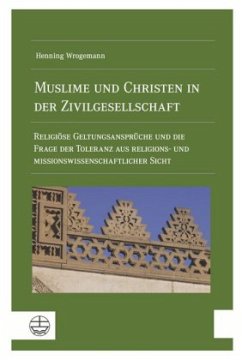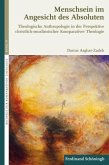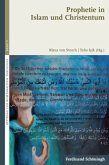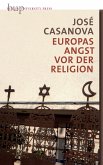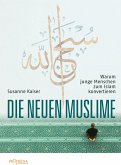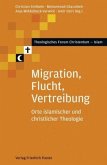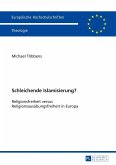Welchen Beitrag leisten Religionen für die Zivilgesellschaft? Heizen sie Konflikte an oder tragen sie zum Erhalt des Friedens bei? Solche Fragen werden derzeit in Medien und Gesellschaft äußerst kontrovers diskutiert. Dabei kommt es in öffentlichen Debatten leicht zu Stereotypisierungen, die dazu beitragen, Meinungen zu verfestigen und Konflikte zu verschärfen. In diesem Buch wird demgegenüber für kritische Nüchternheit und Sorgfalt optiert: Was bedeutet Toleranz genau und welche Potentiale lassen sich in muslimischen Traditionen finden? Braucht "der Islam" eine Reformation? Welche Geltungsansprüche werden von Muslimen und Christen in ihrem missionarischen Wirken erhoben? Wie stehen solche Ansprüche zu Themen wie Respekt, Dialog oder Konversion? Der Aufsatzband Wrogemans geht diesen Fragen nach und macht damit zugleich auf die Relevanz missions- und religionswissenschaftlicher Forschung und Lehre für Kirche und Gesellschaft aufmerksam. [Muslims and Christians in Civil Society. Religious Validity Claims and the Question of Tolerance from the Perspective of Religious Studies and Mission Studies]What contributions do religions make to civil society? Do they foment conflict, or do they help to keep the peace? These kinds of questions are currently the subject of vigorous debate in the media and in society itself. Public discussions often foster and perpetuate stereotypes, which may serve to reinforce entrenched opinions and exacerbate conflicts in turn. This book seeks to counteract the trend by making a case for critical rationality and a circumspect approach: What exactly is tolerance, and what potential do Muslim traditions offer? Is "Islam as a whole" in need of reformation? What validity claims do Muslims and Christians make as they engage in mission? How do claims of this nature relate to such issues as respect, dialog, or conversion? The collection of articles explores these questions, thereby emphasizing the relevance of research in mission studies and religious studies for church and society.

